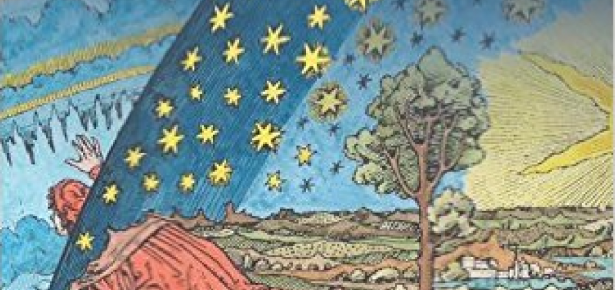
The Rise of Modern Science Explained: A Comparative History by H. Floris Cohen is Cohen’s career-long effort to find answers to the question of, “Why did this recreation begin in Europe rather than elsewhere?”
We sat down with Cohen to hear why he wrote the book and what we can learn from it.
What is your book about?
For the largest part my book provides an account of what happened between Galileo and Newton — the period when recognisably modern science first came about. But it offers more than the main historical facts and their analysis. You know, Europe was rather a latecomer among the advanced civilisations of the world, so why is it that an event so crucial for how our modern ways of life first took place in Europe, not elsewhere? In my book I explain, to the extent that such things can be explained at all, why modern science did not begin to arise in ancient Greece or in ancient China, nor in the world of Islam or in medieval Europe, but in Europe by the end of the Renaissance.
Who have you written the book for?
Well, there’s a bit of a story involved. When still a history student, I was gripped by an awareness that how modern science first came about is one of the truly big questions that a historian can ask. Science has become such an indispensible feature of our everyday lives! I didn’t write my book by candlelight; I didn’t bring it to the publisher on horseback; indeed, the world that we live in has altered so vastly as compared to not even fully two centuries ago. I soon became aware that many people before me had sought to resolve the enigma, without anything like consensus being even in sight. So I decided to map and then compare all serious efforts at resolution, with a view to pressing the debate forward. This yielded a large scholarly work that came out in 1994. By then I felt that the time had come to place my own budding views on the Scientific Revolution on top of those earlier accounts. This effort turned into another, even larger scholarly book, that appeared five years ago. And now for my story. While I was still completing it, I began courting a lady who is specialised in the history of Dutch literature. She told me that she was not going to read that larger book, so would I please write the argument up in a shorter version, accessible as such to her and therefore to every academic of any stripe whatever? I happily obliged. In four or five inspired months I gained the mental freedom to write up my own argument in as simple, unpretentious and lingo-free a style as I responsibly could, yet without undue simplification. All required qualifications and documentation are in the larger parent book, therefore my scholarly conscience had already been satisfied. The outcome (first approved by her sentence by sentence) sold over 12,000 copies in the Netherlands alone. So the short answer to your question is that I wrote the book for every person with an academic upbringing and with a desire to learn in less than 300 pages how this truly crucial event in the history of humanity, the rise of modern science, came about, and why.
The subtitle is ‘A Comparative History’ — what do you mean by that?
The entire argument is comparative through and through. I compare at some length how the ancient Greeks and the ancient Chinese sought to come to grips with nature. I then compare how, many centuries later, truly smart thinkers and doers in Islamic civilisation, in medieval Europe and in Renaissance Europe dealt with the relevant Greek texts insofar as these had been preserved and were being translated in Arabic or in Latin. I compare how results attained by Galileo, or Kepler, or Bacon, or Descartes, compare with those of their immediate predecessors, thus making it clear that what was going on in their pioneering generation was of truly revolutionary proportions.
What singles out your book as compared to others on the same subject?
Its being grounded in a career-long obsession with the problem of the rise of modern science. Its near-colloquial, at times witty tone of voice, which has been preserved quite well in the English translation. Its unceasing search for what caused events, using comparison as the primary explanatory tool. Its constructive refusal to go along with the pervasive scepticism about the rise of modern science that has been rampant among my fellow historians of science for decades. Indeed, the book tells you everything you always wanted to know about the Scientific Revolution but had already given up asking.
Latest Comments
Have your say!